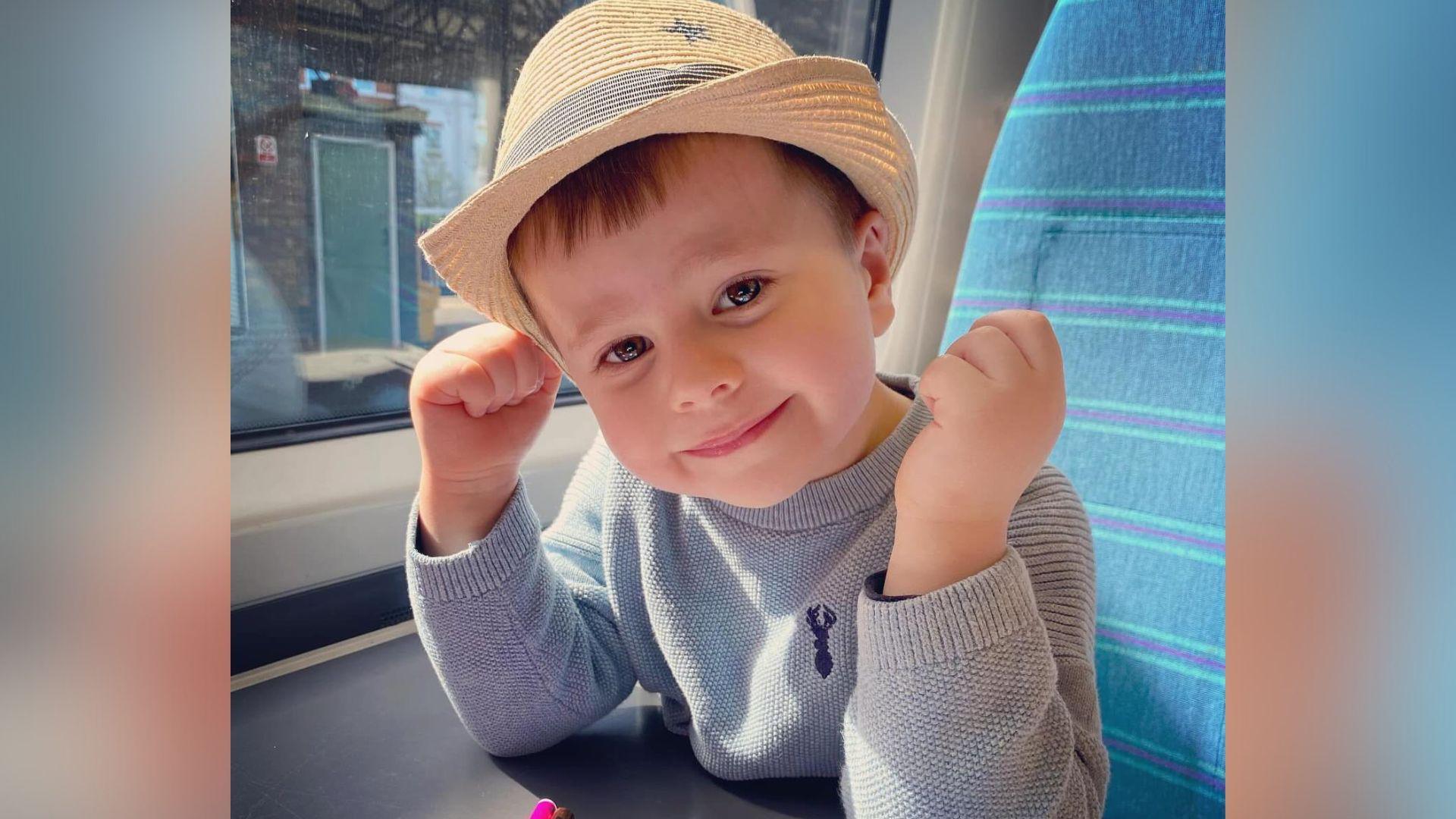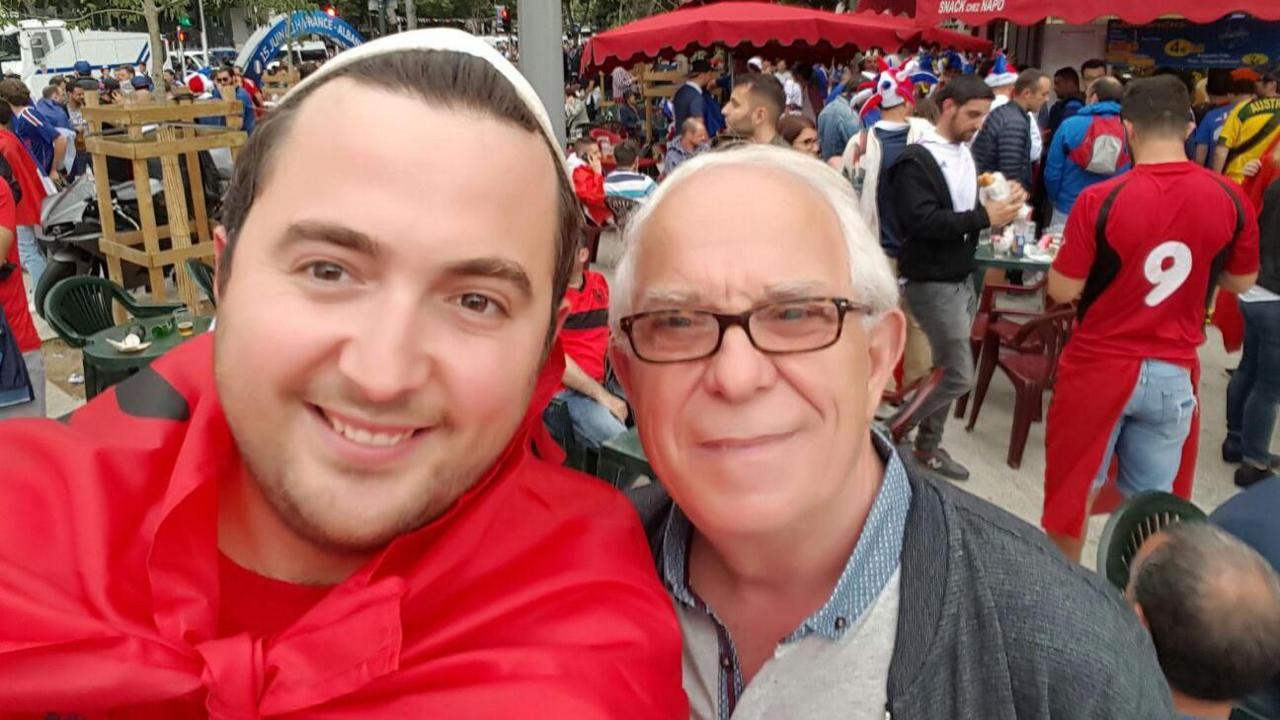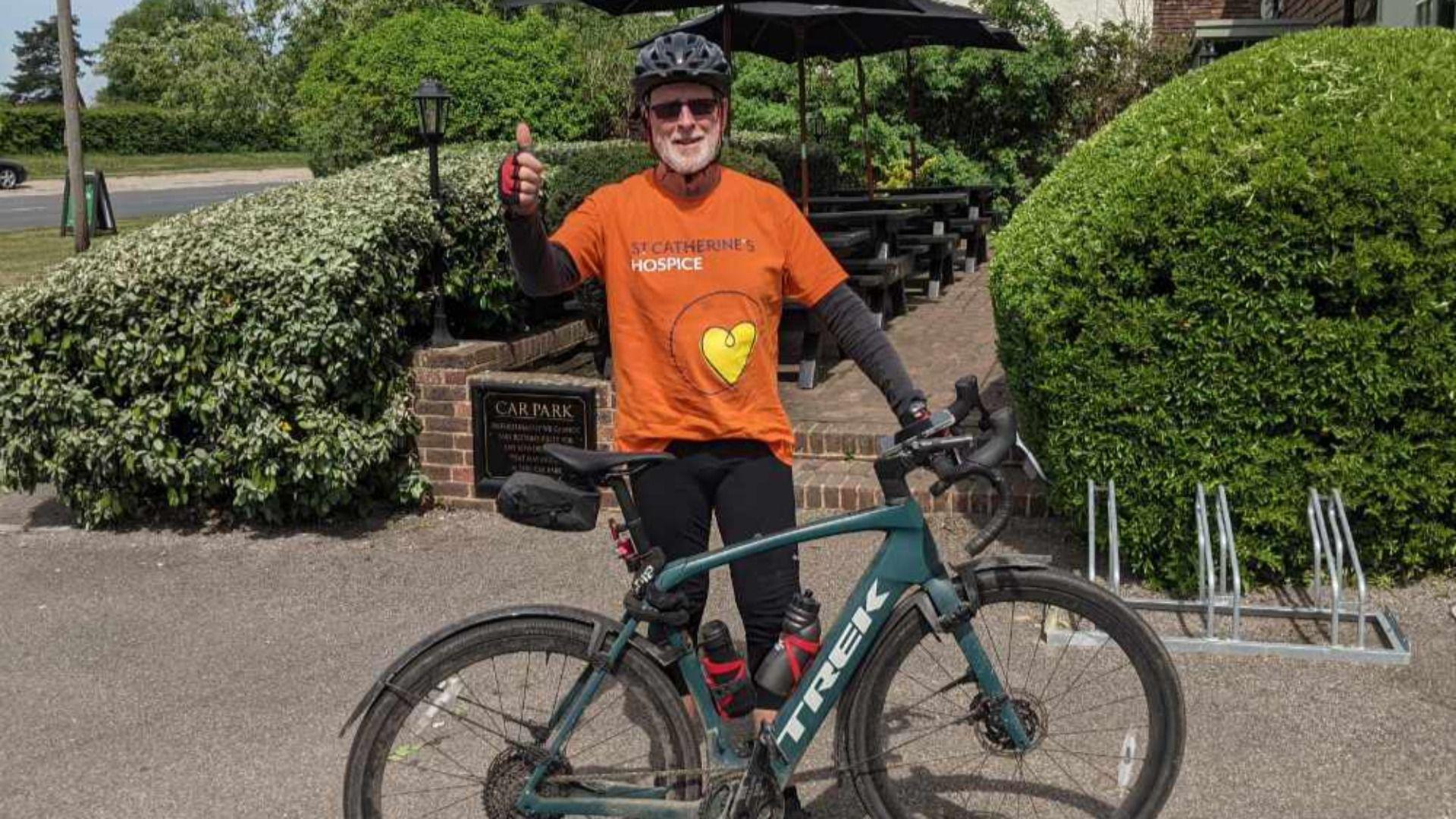Family raises funds after boy dies of rare cancer

Billy died after a a five-month illness with Diffuse Intrinsic Pontine Glioma (DIPG)
- Published
The parents of a four-year-old boy who died from a rare brain cancer are launching a "cheeky" calendar with their local rugby club to raise awareness and funds.
Billy Thompson died on 31 March, 2024, following a five-month illness with Diffuse Intrinsic Pontine Glioma (DIPG) - an aggressive tumour that develops in the brain stem.
After his death, his parents, Ellie and Jamie Thompson, who live in Great Bookham, set up Billy's Battalion, a charity dedicated to raising money for DIPG research and treatments.
Mrs Thompson told BBC Radio Surrey: "The past year has been monumentally hard but having Billy's Battalion in Billy's name is something good out of the bad."
The charity has now teamed up with the Effingham and Leatherhead Rugby Club, known as the Eagles, to launch the 2026 calendar.
Mrs Thompson said the players had stripped off for "tasteful, mostly family-friendly, and cheeky" photos.

Players at Effingham and Leatherhead Rugby Club, known as the Eagles, have stripped off for the charity calendar
Mrs Thompson described her son as a "cheerful and bright little boy" who loved his rugby and superheroes.
"Anyone who met him would fall in love with him," she added.
She said: "Billy spent countless Saturdays up at the Eagles, watching his daddy play and dreaming about the day he'd be one of the big boys."
She said the club had supported the family during their toughest moments and continued to do so.
The money raised will go towards DIPG research, treatments and trials.

Mrs Thompson said the Eagles had been supportive of the family during their toughest moments
Tony Robinson, director of the Eagles, said of the club's effort: "We wanted to do something that makes people smile while raising serious money for a serious cause, all in memory of a little boy close to our hearts."
Mr Robinson joked he "dodged a bullet" as he was away watching the Women's Rugby World Cup when the photo shoots were taking place.
"Back in the day I would have taken part!" he said.
According to Brain Research UK, DIPG mainly presents itself in children ages five to 10 years, there is no cure and most children die within 18 months of diagnosis.
Mrs Thompson said: "DIPG is just a death sentence at the moment and it's not acceptable."
If you have been affected by any of the issues this report has raised, you can find help and advice on the BBC Action Line pages.
Related topics
- Published5 September

- Published25 May
